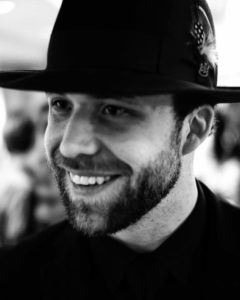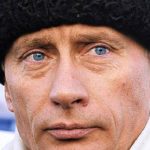A Tyrant By Any Other Name…
A disturbing trend among some libertarians and conservatives has been to make excuses for Vladimir Putin and his actions in Ukraine. A distaste for Western intervention and the popularity of a world leader whose macho persona begs to be satirized online has probably helped to fuel a sympathetic narrative of the Russian leader and his actions in Crimea. A common criticism levied against those opposed to Russian intervention in Ukraine is that Putin was democratically elected. The narrative has become so detached from reality, it is time to put it to bed.
Putin has been elected several times in a slew of kangaroo elections. After serving as Prime Minister from 1999-2000, Putin was elected President. To appease widespread disapproval of his leadership, Putin allowed his colleague Dmitri Medvedev to run for president in 2008 while he returned to the Prime Minister position. In 2012, Medvedev allowed Putin to return the presidency. Regardless of which office he was holding, Putin has remained in control of Russia.
In 2012 Putin returned to the presidency amid allegations of widespread election fraud and massive protests. Anti-Putin protesters were forcibly detained. Tough crackdowns against political protesters have become a hallmark of the Putin regime.
In 2009 attorney Stanislav Markelov and journalist Anastasia Baburova were gunned down in broad daylight only a half mile from the Kremlin. Markelov was defending Chechens who had been brutalized by Russian troops and disparaged by the Russian media. Baburova was a journalist critical of Putin and Russian policies towards the Chechens. Baburova became the 15th journalist to be murdered since Putin’s reign began. The murders of Putin’s political opposition are never truly investigated.
Another famed victim of Putin’s media purge was Anna Politkovskaya. A staunch critic of Putin and an internationally acclaimed journalist, Politkovskaya was executed in the light of day on Putin’s birthday in 2006. Her book Putin’s Russia detailed an authoritarian regime and human rights violations committed against Chechens in their ongoing conflict with Russia.
In 2006, another high-profile death marred the image of the Putin regime. Alexander Litvinenko, a former Russian intelligence officer, fled persecution from Russia and sought asylum in the United Kingdom. Litvinenko had accused Putin of pedophilia. It soon became clear that Litvinenko had been poisoned with a rare form of plutonium. In his dying statement, Litvinenko had a message for Putin: “You may succeed in silencing one man but the howl of protest from around the world will reverberate, Mr Putin, in your ears for the rest of your life. May God forgive you for what you have done, not only to me but to beloved Russia and its people.”
Though British officials believed they knew Russian intelligence was behind the assassination, they failed in their attempt to extradite the intelligence officer they believed responsible. Just one more name on the long line of murders that Putin’s regime has never been held accountable for.
Putin has ruled through fear and intimidation. He has openly conducted the Russian state as an instrument of political murder. He has imprisoned protesters and presided over laws which violate human rights.
He has exerted that very same dominance over neighboring states, especially in Ukraine. In fact, Russia has already cracked down on Ukrainian independent media.
Putin is not a democratic leader and he is not a man of the people. 73% of Russians are opposed to the military intervention in Ukraine. It may be Putin’s most unpopular move to date amongst the Russian people. Americans should be careful not to accept Kremlin propaganda on face value. Putin’s actions reflect his desire to expand the iron grasp of Russia to former Soviet states, not the benevolent intervention of a man of the people.
About the author: Keith Farrell is a political commentator and community organizer. He is a frequent contributor The Libertarian Republic and the founder and president of Spirits of ’76, a nonprofit service club dedicated to solving community problems with volunteer efforts. He graduated from the University of Connecticut and holds a BA in American Studies and Urban & Community Studies. Follow him on Facebook.
He graduated from the University of Connecticut and holds a BA in American Studies and Urban & Community Studies. Follow him on Facebook.




5 comments